Spray foam insulation is a type of insulation material that is made from polyurethane foam. It is applied using a special spray gun, and as it is sprayed, it expands to fill in gaps and crevices in walls, ceilings, and floors. it is beneficial because it can seal and insulate at the same time, which can lead to better energy efficiency and cost savings in a building or home. Additionally, spray foam provides an excellent barrier against moisture infiltration, and can help improve indoor air quality by reducing the amount of outdoor pollutants that enter a building. It is a popular choice for both residential and commercial buildings. Learn more about Spray Foam Insulation. and also Contact us for this service quote.
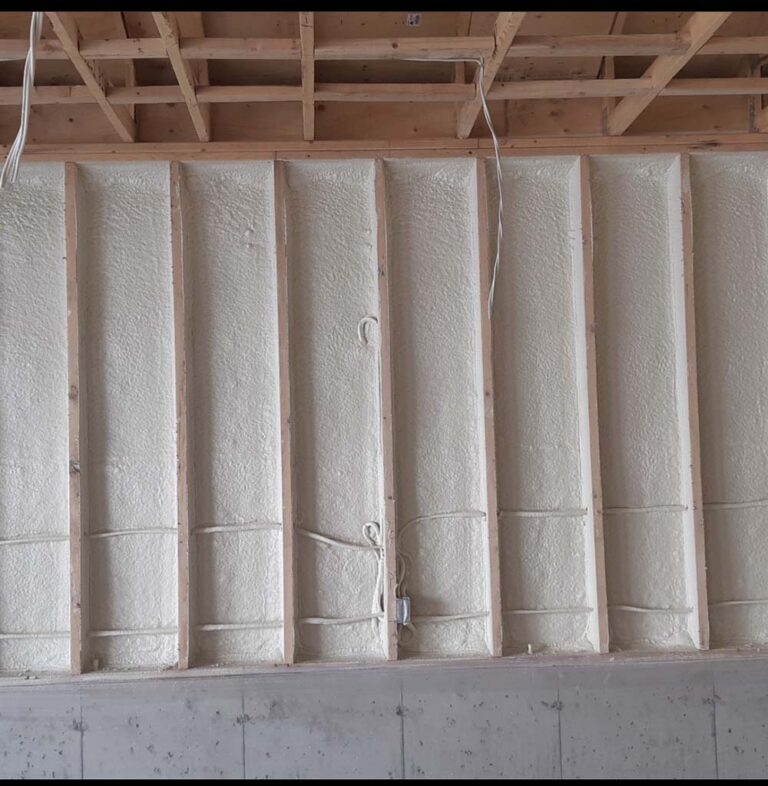
Spray foam insulation is a type of insulation that is sprayed onto a surface and then expands to fill gaps and spaces.
There are two main types of spray foam: open-cell and closed-cell insulation.
This type of spray foam insulation is typically less dense and has a spongy texture. It is called “open-cell” because the tiny cells of the foam are not completely closed. This means that air and moisture can pass through it, making it a good option for interior walls, attics, and other areas where some air exchange is desired.
Open-cell insulation is also less expensive than closed-cell insulation.
This type of spray foam insulation is denser and has a harder texture than open-cell foam. The cells of the foam are completely closed, which makes it more resistant to air and moisture infiltration. Closed-cell insulation is a good option for exterior walls, roofs, and other areas where a high level of insulation is desired. It is also more expensive than open-cell insulation.
Spray foam insulation offers several advantages over other types of insulation, including:
Energy efficiency: Spray foam has a high R-value, which means it provides excellent thermal insulation, reducing the amount of energy needed to heat or cool a space.
Air sealing: insulation creates an airtight seal, preventing air leaks and reducing energy waste.
Moisture resistance: Closed-cell spray foam is resistant to moisture, preventing the growth of mold and mildew.
Noise reduction: Spray foam insulation can also help reduce noise transmission, creating a more comfortable living or working environment.
Longevity: Foam can last for the lifetime of a building if installed correctly, reducing the need for future insulation replacement.
Environmentally friendly: Foam can help reduce a building’s carbon footprint by reducing energy consumption and improving indoor air quality.
Choosing the right spray foam insulation for your needs depends on several factors, such as your budget, the type of building or space you want to insulate, and your insulation goals. Here are some steps to help you make an informed decision:
Spray foam is an insulation material that is sprayed to the place where we want insulation.
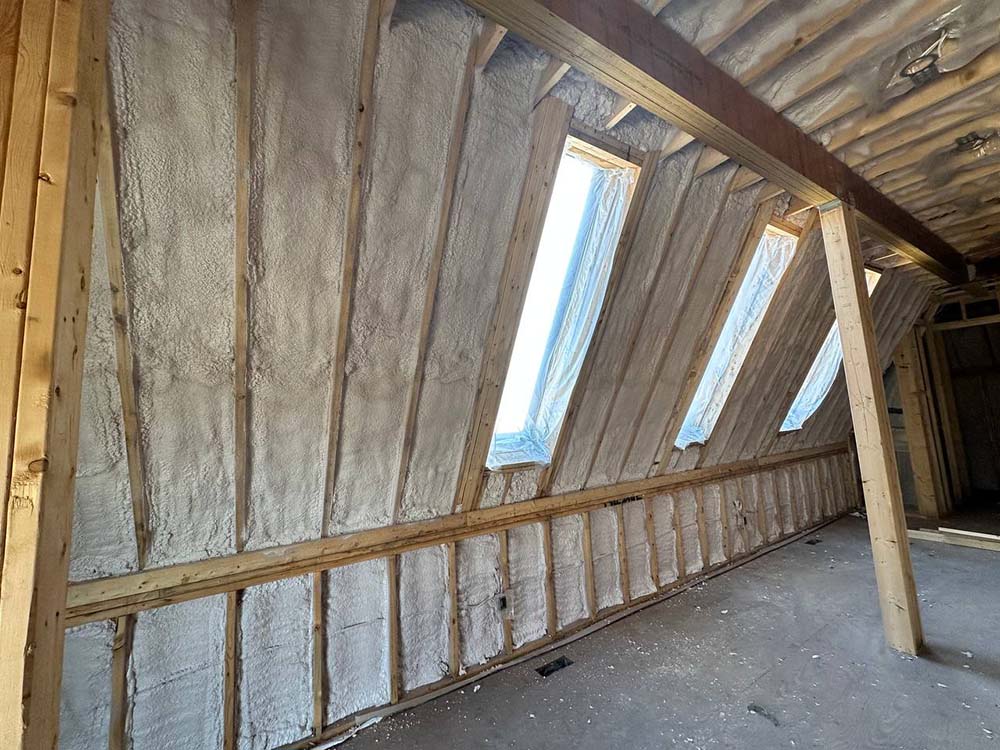
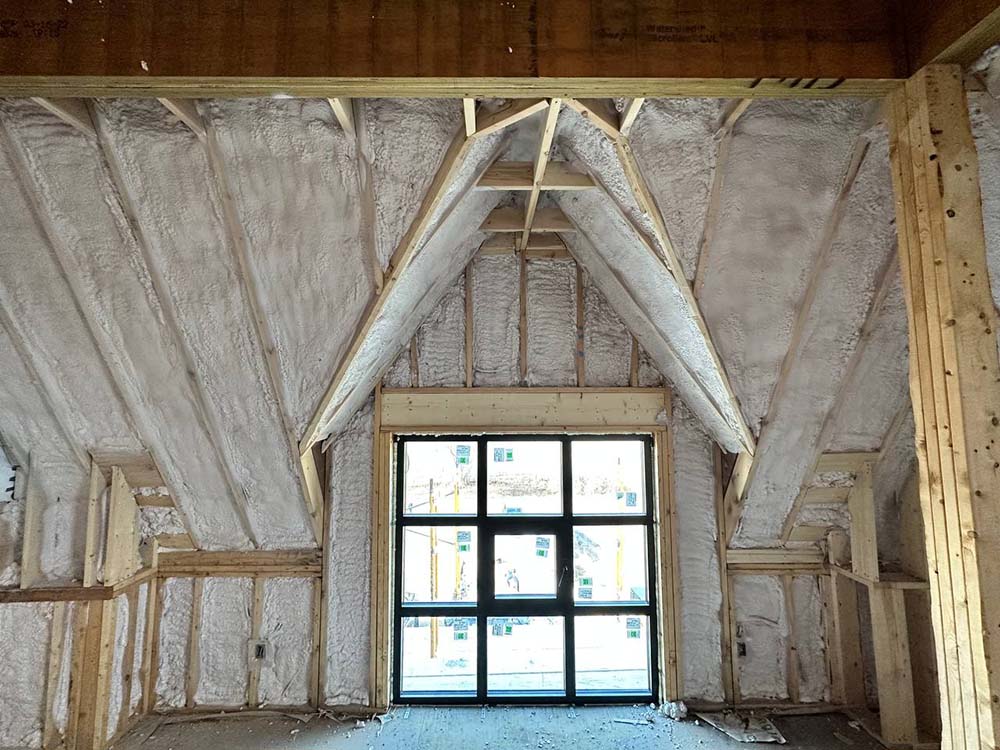
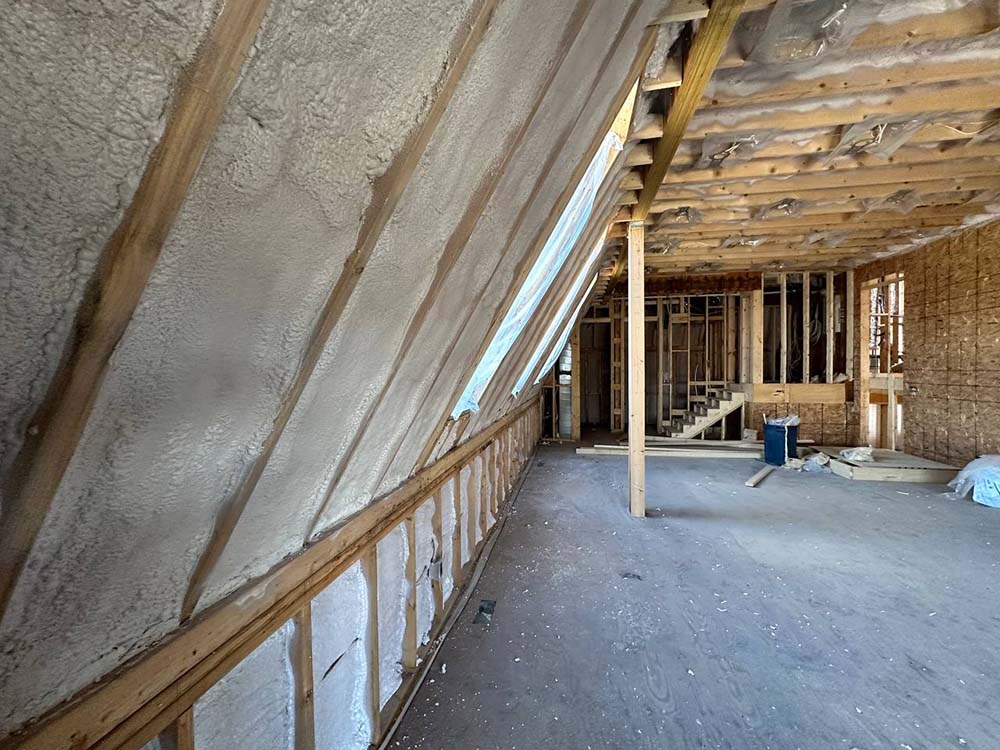
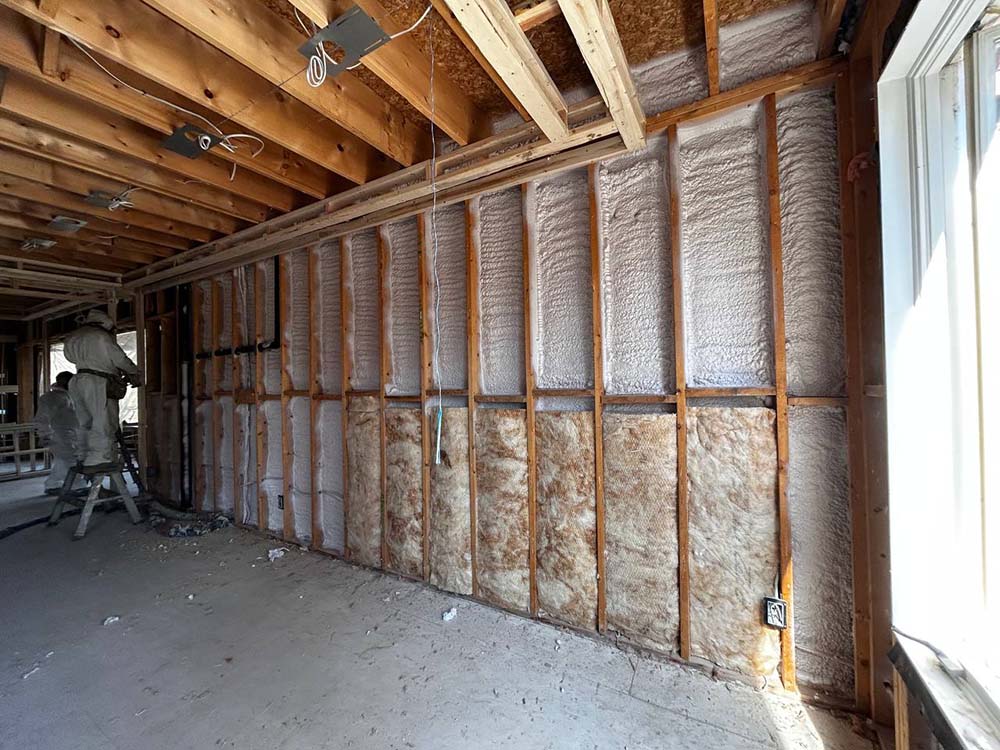
If you looking for an option for your new construction as an insulator then Spray foam could be the sealing product of choice. Before discussing Spray foam insulation let us tell you about insulation. An insulator is used for insulation. And insulation is helpful to prevent heat transfer. Furthermore, Insulation is heat resistant. An ability of a heat resistant is calculated in terms of its resistant value also known as the R-value.
Spray foam insulation is a popular choice for homeowners in Toronto who want to improve the energy efficiency of their homes. It is a type of insulation that is sprayed onto surfaces and expands to create a seamless barrier that blocks air and moisture from entering your home. There are several benefits to using spray foam insulation in Toronto, including improved energy efficiency, reduced energy bills, and better indoor air quality. It can also help prevent mold growth and reduce noise levels. Spray foam insulation is a great investment for homeowners in Toronto who want to increase the comfort of their homes while reducing their energy costs.
In hot weather, insulation prevents the leakage of warm air into the house from the outside environment. Additionally, in winter, it keeps the inner atmosphere at the level of increased temperature by preventing the leaking of inner warm air to the outside cold atmosphere.
Well, there are various options out there for insulation. Here, in this article, we really like to tell you about spray foam.
Spray foam insulation is a type of insulation material that is applied by spraying it onto surfaces, such as walls, ceilings, or floors. The foam is created by combining two chemical components, which react and expand when they are sprayed onto a surface. The foam quickly hardens into a solid material, creating a barrier that helps to prevent heat loss or gain. Spray foam insulation is popular in both residential and commercial settings due to its effectiveness in reducing energy costs and improving indoor air quality.
Spray foam is made up of Isocyanate and Polyol resin.
There are two most common types of spray foam.
Closed cell type– It is harder and good to fill small spaces.
Open cell type– This kind of product is not harder as compared to open cell foam. This gives a sponge-like appearance.
Spray foam is applied on walls, ceilings, and other places to prevent leakage of air from joints and gaps. Yes, we can apply spray foam in gaps that are inaccessible.
Along with the benefit of saving energy and maintaining the temperature of the home, Are there other benefits of spray foam?
Yes, of course, let me mention here:
Firstly, shake a can for almost 30 seconds. And attach the spout.
Then wear gloves, goggles, and long sleeves.
Furthermore, dispense the foam slowly and steadily to seal gaps indoors and outdoors.
Don’t overfill the opening because the foam will expand. In case of excess, cut with the blade when dry.
Moreover, don’t forget to use personal protective equipment. Isocyanate chemical in a spray foam is not good for health. Be safe!
I have good information for you, here. Do you know, spray foam is not bad for our environment? Indeed, There is no harm in it. It has a 0 % effect on our ecosystem.
There are some negative points about spray foam along with many positive points. Likewise, We really want to tell you everything about manufacturing products used in construction. Please keep this in your mind and our skillful team is working to reduce the circumstances of these negative properties over many years. So, book an appointment with us. If you are unfamiliar with how to work, you should seek professional assistance.
Despite the fact that spray foams are a highly successful method of insulation, they cannot be used in all places. It lessens the insulation’s performance level. It might additionally cause water damage because the pressure difference permits water to flow into the gaps.
Even though it’s extremely unlikely, the spray foam can sometimes shrink over time. This is very likely in extremely bad weather.
For further discussion, contact only and only yours Ray General. Visit our website for more updates. Stay tuned!